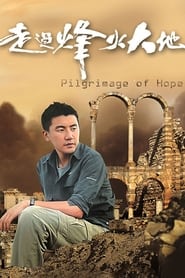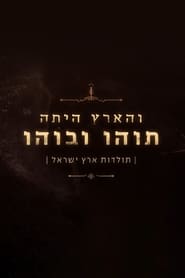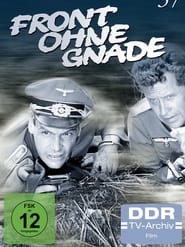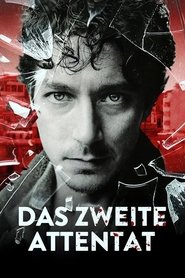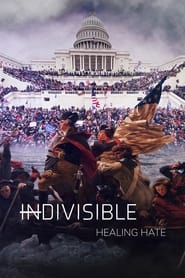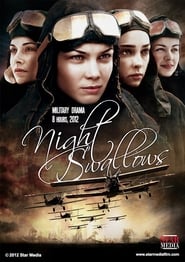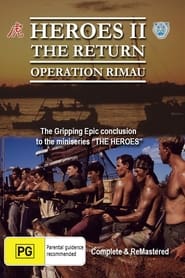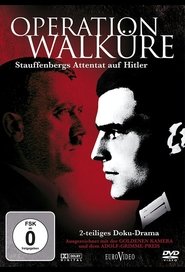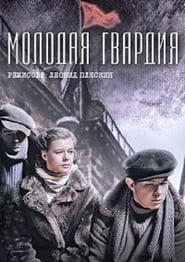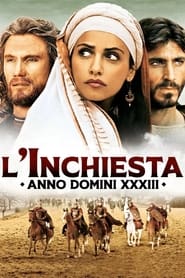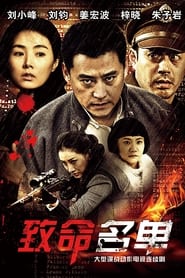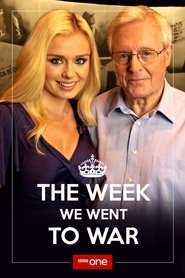War Politics TV Series - Page 70
-
Pilgrimage of Hope
2012
-
狐影
2015
狐影
2015
-
我的娜塔莎
2012
-
The Holy land
2016
The Holy land
2016
star 7.5The history of the Land of Israel from prehistoric times to the Ottoman period. -
Front Without Mercy
1984
-
Dangerous Truth
2025
Dangerous Truth
2025
star 6.5Centers around 35-year-old Alexander Jaromin, who for 20 years has been living with his mother in Athens under assumed identities in the witness protection program of the Federal Criminal Police Office (BKA) after his father and sister were killed in a terrorist attack. Tormented by the unknown, Alexander begins a desperate search to uncover the truth and soon finds himself under the close watch of the Federal Intelligence Service, with his life in danger as he ends up in a race against time in which he must do whatever it takes to uncover the truth. -
Indivisible: Healing Hate
2022
star 1Tracing the origins of anti-government extremism by examining a deadly series of historical events that galvanized far right radicals to take violent action. -
Byakkotai
2007
-
One Land, One Sky
2018
One Land, One Sky
2018
During King Ekkathat’s reign, the mischievous Mang Mao repeatedly escapes arranged dates, only to clash with Sri Khan Thin—unaware he is actually Khan Thong, a young man in disguise investigating his parents’ mysterious deaths—leading to chaos, hidden identities, and unexpected encounters. -
Night Swallows
2013
Night Swallows
2013
star 2.2On 8th October 1941, Stalin issued a secret order forming a female aviation unit. -
Heroes II: The Return
1991
star 8Heroes II: the Return is a 1991 Australian mini-series about Operation Rimau during World War II. The true and tragic story of Operation Rimau, one of the most daring raids of WW2. In September 1944 Ivan Lyon and 22 Australian and British troops attempted to blow up Japanese ships in Singapore. Just 10 miles away from the target they are discovered and so begin a long and desperate bid to escape to Australia. The series shows how after the war it is revealled that 13 men were killed during the pursuit and that the remaining 10 were murdered by the Japanese in a war crime. Tragically this was covered up and their killers were never charged while the men themselves never received any honours for their heroism. -
The Eunuch
1980
The Eunuch
1980
Eunuch is a TVB television series, premiered in 1980. Theme song "Eunuch" composition and arrangement by Joseph Koo, lyricist by Wong Jim, sung by Adam Cheng. -
Attack on Leningrad
2007
Attack on Leningrad
2007
star 5.5When in 1941 Nazi Germany invaded the Soviet Union, their troops quickly besieged Leningrad. Foreign journalists are evacuated but one of them, Kate Davies, is presumed dead and misses the plane. Alone in the city she is helped by Nina Tsvetnova a young and idealist police officer and together they will fight for their own survival and the survival of the people in the besieged Leningrad. -
Operation Walküre
1971
Operation Walküre
1971
star 6"Operation Valkyrie" was the name of an official alarm plan during the Second World War. With the help of this plan, the conspirators around Claus Schenk Graf von Stauffenberg wanted to bring about the overthrow of Germany on July 20, 1944. The events are well known: Stauffenberg's assassination attempt failed, Adolf Hitler remained alive. In addition to the purely scenic reconstruction, this two-part, documentary-style film consists of interspersed interviews and reports with eyewitnesses and survivors who were directly involved. Everything that is available in the way of authentic testimony about July 20, 1944 is examined and documented with the highest degree of realism. -
The Young Guard
2015
The Young Guard
2015
star 8.7A young partisan Viktor Tretyakov and his school friends decide to organize a resistance group to the fascists. They call it the "Young Guard" and attract familiar boys and girls to it. After a while, the Young Guards are joined by scouts sent to the city to collect information — Lyubov Shevtsova and the Artist. For a long time, the "Young Guard" manages to successfully commit sabotage, but they are opposed by an experienced and insidious enemy, who, in the end, manages to expose the Young Guards. -
致命名单
2013
致命名单
2013
-
Fake News
2018
Fake News
2018
star 7Itsuki Shinonome is sent to the internet media department from a major newspaper. Chief Editor Kanji Usami assigns her a story involving green caterpillars being found in instant food. A man who posted about the caterpillars in his instant food on social media appears in front of her. A fight between companies eventually draws in Itsuki Shinonome. -
The Week We Went To War
2009
star 5Katherine Jenkins and Michael Aspel celebrate the heroes of the Home Front. -
Making History
2021
